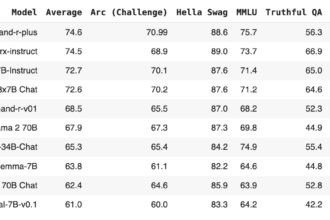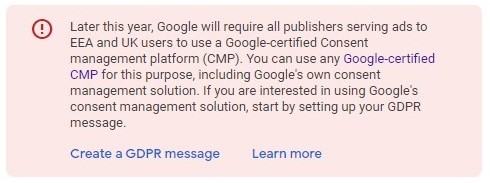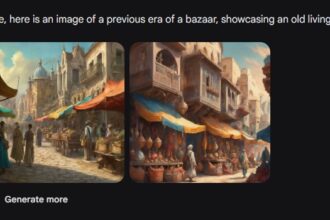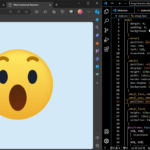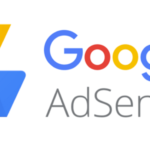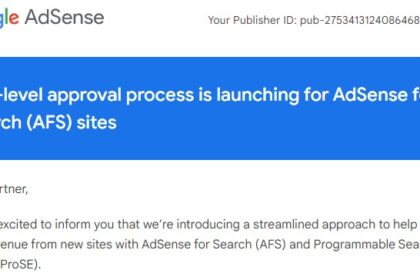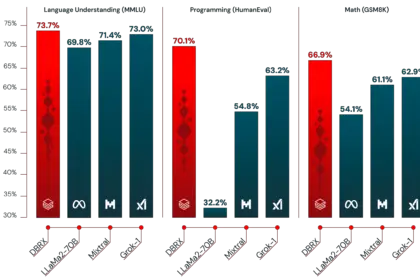Discover how Google’s recent changes in the European Economic Area (EEA) and the United Kingdom (UK) may affect your current consent management platforms and their impact on ad-serving capabilities.
Later this year, Google will require all publishers serving ads to users in the European Economic Area (EEA) and the United Kingdom (UK) to use Google’s approved consent management system (CMP). You can use any CMP certified by Google for this purpose, including Google’s own approval management solutions. If you’re interested in using a Google consent management solution, please start by preparing your GDPR message.
Notification on Google AdSense Dashboard
- Google is working to implement new Consent Management Platform (CMP) requirements for advertisers in the European Economic Area and the United Kingdom.
- By the second half of 2023, advertisers using Publisher products must use a Google Certified CMP.
- This change comes on the heels of the final V2.2 of IAB’s TCF filing in Europe, which aims to trial online advertising approval continuously.
The digital landscape constantly evolves, and Google is at the forefront of these changes. As part of its commitment to provide high data privacy standards, Google has introduced new requirements for publishers who use its products, such as Ad Manager, AdMob, and AdSense in the European Economic Area (EEA) and the United Kingdom (UK).
Publishers must now use the Google Certified Consent Management Platform (CMP) integrated with the IAB’s Transparency and Consent Framework (TCF) when serving ads to users in the European Economic Area or the United Kingdom.
Table of Contents
A brief background of the IAB TCF
In 2020, Google consolidated its advertising systems under the Transparency and Consent Framework of IAB Europe.
This framework helps support the digital landscape and advertising ecosystem, which includes various consent management platforms.
Consent management platforms provide legally required notices to users about:
- Data to be processed.
- The specific type of entities that process their data and for what specific purposes?
- Any other legal requirements are required under various privacy legislations.
These Google partner platforms support publishers within the advertising ecosystem.
As consumers’ expectations around providing consent have evolved, Google has introduced new requirements to adhere to ongoing guidelines within the TCF’s Transparent Framework and set footprints hoping that other industry platforms will follow suit.
Google’s new CMP requirements
In the wake of the release of the final TCF v2.2, Google has announced new requirements for CMPs aimed at promoting a unified and trusted approach to users and publishers.
Google said that anyone using its publisher products to serve ads to users in the European Economic Area or the United Kingdom must use Google Certified Consent Management Platforms (CMP) that comply with the latest IAB TCF. These requirements affect the use of Google Publisher products, such as:
- Google AdSense
- Google Ads Manager
- AdMob
To get CMP certifications, you must integrate with TCF and support Google’s additional approval specification when working with publishers.
Why You Need a Google-Certified CMP
Simply put, Google is making TCF a prerequisite for its ad technology ecosystem. But, using a TCF-compliant CMP and ensuring it’s a Google-certified CMP that integrates with TCF v2.2 is essential.
To serve personalized ads: Any configuration error in CMP that does not comply with Google’s requirements will prevent you from serving personalized ads. This means that unless your CMP is certified by Google, you can only show ads not intended for visitors in Europe and the UK.
For better ad revenue: Since you cannot run personalized ads, you may notice a significant decrease in your ad revenue. This is especially true if you are a publisher with much European traffic.
Regulatory Compliance: TCF is important for publishers who rely on targeted advertising as part of their business model. Provides a standardized way for publishers to work with third-party vendors and reduces the risk of non-compliance.
The deadline for the implementation of TCF v2.2 is 16 January 2024. Therefore, switch to a certified CMP before this date to continue using personal data for targeted advertising.
How might these changes affect publishers?
Advertising revenue from users in the United Kingdom and the European Economic Area may be adversely affected due to this change.
There are two possible scenarios whose outcome is currently unclear. In the first scenario, publishers may choose to disobey Google’s guidelines. In another scenario, publishers may use content management plans certified by Google to implement a Technical Compliance File (TCF), but users may not provide their consent. However, it would be logical to assume that Google would show non-personalized ads (NPA) instead of personalized ads (PA).
According to data analytics group NewZoo, by 2022, mobile devices will account for nearly half of all publishers’ total global revenue. About 12% of this percentage will be attributed to Europe. Although there are no complex numbers, we can probably conclude that Europe accounts for roughly the same percentage of advertising revenue as in-app purchases (IAP).
The percentage of a publisher’s revenue from that affected area will determine how they prioritize the work in question and how quickly they comply with the new regulations. Additionally, Google and other parties may decide it is in their best interest to implement the same standards internationally eventually.
Google’s Timeline and Certification Process
May 2023 and beyond: Google has begun certifying consent management platforms (CMPs) working with affected publishers. Google will work with CMPs to certify them according to the specified accreditation criteria.
According to available information, this change will be implemented “later this year” Given the scale of this shift and the potential repercussions it could cause if publishers are not given sufficient notice, it seems unlikely that Google will begin to strictly enforce this policy until at least the fourth quarter of this year.
What should publishers do?
Publishers already working with a CMP: To ensure a smooth transition, publishers working with CMP should actively talk with the service provider about the certification process.
Publishers with their own CMP platform: Publishers with their own CMP platforms can register their interest in completing the certification process for their platform.
Publishers who need to find a CMP platform: Publishers looking for a new CMP platform partner can look at the list of Google-approved CMP platforms. Google will regularly add other CMP platforms as they gain accreditation.
Publishers Using Google’s GDPR User Consent Messages for Privacy and Messages: We encourage publishers to consider which CMP platform is best for them. To support publishers, GDPR user consent messages available to Ad Manager, AdSense, and AdMob publishers have been certified in the Privacy and Messages flag under the new TCF requirements.
Summary
Starting January 16, 2024, Google is introducing new requirements for publishers and developers using Google AdSense, Ad Manager, or AdMob to serve ads to users in the European Economic Area (EEA) or the UK. In addition to the existing EU user consent policy, they will now be required to use a Consent Management Platform (CMP) certified by Google and integrated with the IAB’s Transparency and Consent Framework (TCF).
The IAB TCF requirement means publishers must work with a Google-certified CMP for serving ads to users in the EEA or UK. CMPs are assessed by Google for TCF compliance, and successful CMPs will be listed as Google-certified. The certification doesn’t guarantee full TCF compliance or compliance with privacy laws.
Google has begun the process of certifying CMPs, and publishers are advised to proactively discuss the certification process with their current CMPs or consider working with Google-certified CMPs.
Only limited ads will be eligible to serve on EEA and UK traffic if a partner doesn’t adopt a Google-certified CMP by January 16, 2024. Traffic from a Google-certified CMP will continue to be eligible for personalized ads, non-personalized ads (NPA), or limited ads.
Google’s new CMP requirements aim to establish a unified and reliable approach to transparency and consent in the digital advertising ecosystem. Publishers are encouraged to comply with these requirements and work with certified CMPs to ensure compliance and optimize their monetization efforts.



